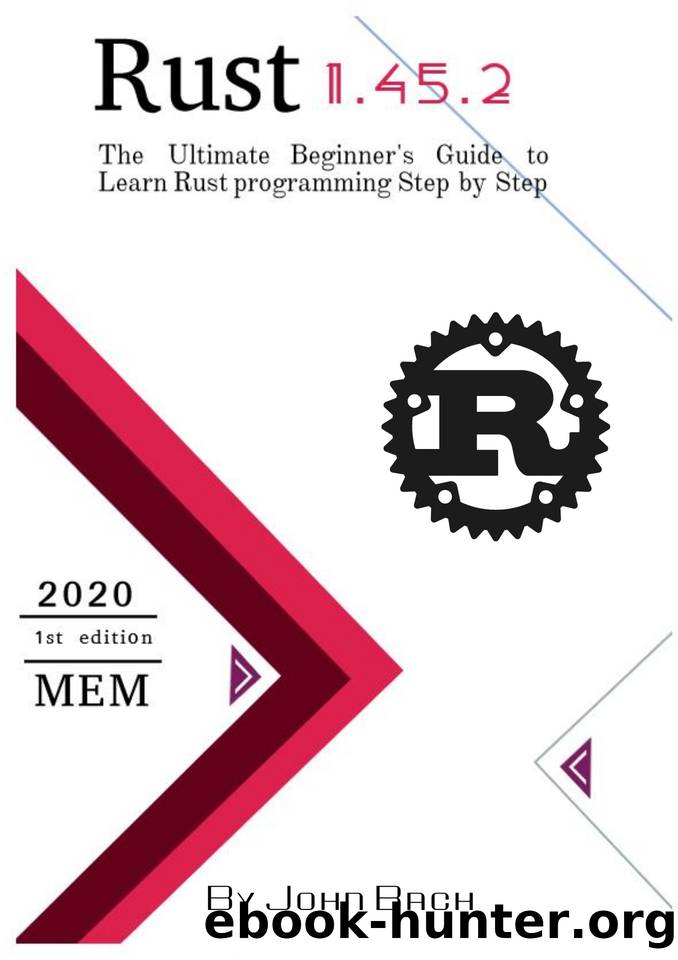Rust: The Ultimate Beginner's Guide to Learn Rust programming Step by Step by Bach John

Author:Bach, John [Bach, John]
Language: eng
Format: epub
Published: 2020-08-22T16:00:00+00:00
0
0
one
one
0
one
two
3
0
3
3
6
We have called fold () with these arguments:
# (1..4)
.fold (0, | sum, x | sum + x);
So 0 is our base, sum is our accumulator, and x is our element. In the first iteration, we assign sum to 0 and x is the first element in our range, 1 . Then we add sum and x , which gives us 0 + 1 = 1 . In the second iteration, that value becomes the value of our accumulator, sum , and the element is the second element in the range, 2 . 1 + 2 = 3 and likewise becomes the accumulator value for the last iteration. In that iteration, x is the last element, 3 , and 3 + 3 = 6 , the final result for our sum . 1 + 2 + 3 = 6 , that's the result we get.
Whew. Fold may be a little strange at first glance, but once it clicks, you can use it everywhere. Whenever you have a list of things, and need a single result, fold is appropriate.
Consumers are important because of an additional property of iterators that we haven't talked about yet: laziness. Let's talk more about iterators and you'll see why consumers are important.
Download
This site does not store any files on its server. We only index and link to content provided by other sites. Please contact the content providers to delete copyright contents if any and email us, we'll remove relevant links or contents immediately.
Algorithms of the Intelligent Web by Haralambos Marmanis;Dmitry Babenko(18333)
Azure Data and AI Architect Handbook by Olivier Mertens & Breght Van Baelen(7693)
Building Statistical Models in Python by Huy Hoang Nguyen & Paul N Adams & Stuart J Miller(7683)
Serverless Machine Learning with Amazon Redshift ML by Debu Panda & Phil Bates & Bhanu Pittampally & Sumeet Joshi(7550)
Driving Data Quality with Data Contracts by Andrew Jones(7325)
Data Wrangling on AWS by Navnit Shukla | Sankar M | Sam Palani(7314)
Machine Learning Model Serving Patterns and Best Practices by Md Johirul Islam(7043)
Learning SQL by Alan Beaulieu(6288)
Weapons of Math Destruction by Cathy O'Neil(6279)
Big Data Analysis with Python by Ivan Marin(5970)
Data Engineering with dbt by Roberto Zagni(4950)
Solidity Programming Essentials by Ritesh Modi(4589)
Time Series Analysis with Python Cookbook by Tarek A. Atwan(4419)
Pandas Cookbook by Theodore Petrou(4105)
Blockchain Basics by Daniel Drescher(3581)
Natural Language Processing with Java Cookbook by Richard M. Reese(3170)
Hands-On Machine Learning for Algorithmic Trading by Stefan Jansen(3071)
Learn T-SQL Querying by Pam Lahoud & Pedro Lopes(2961)
Feature Store for Machine Learning by Jayanth Kumar M J(2941)
